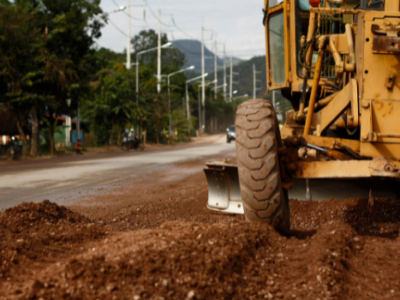Landowners Need Legal Advice in Condemnation Cases
August 3, 2019
By Douglas H. Flint
This article was published in the Cherokee Tribune & Ledger News on August 3, 2019: Tribune Ledger News – FROM THE BENCH & BAR.
Many Cherokee County property owners are hearing an unexpected knock at their door these days. Why? Because the Georgia Department of Transportation is currently embarking on a massive highway widening project across central Cherokee County.
The state is planning to widen Ga. Highway 20 from its current configuration of 2 or 3 lanes, to a mind-boggling superhighway with as many as 10 lanes in certain locations! So the uninvited knock at the door is from a “negotiator” sent in by the DOT to acquire the property. This scene reminds me of a famous Ronald Reagan quote: “The most terrifying words in the English language are: I’m from the government and I’m here to help.”
Indeed, this negotiator, despite whatever he or she may say to the property owner, is certainly not there to help (at least his or her job is certainly not to “help” the property owner!) The visitor’s mission is to acquire your property as cheaply and as quickly as possible for his or her boss, the DOT. Unfortunately, in my lengthy career as a condemnation defense lawyer, I have never seen a situation in which the negotiator offers the full value of the property when he or she comes knocking. Why is this? Because this initial offer almost never takes into account all of the damages that a property owner will suffer as a result of a government-taking their land.
Both the United States Constitution and the Constitution of the State of Georgia guarantee citizens the right to “just and adequate compensation” when and if the government seeks to take someone’s land. This is one of the fundamental freedoms that we enjoy as Americans. Nonetheless, despite the intent of both of these Constitutions, it has been my observation in my 30 years of condemnation defense that unrepresented property owners still end up suffering at the hands of the government. The reason condemnation lawyers like me have a job is because there is usually a huge gap between what the property owner believes is “just and adequate,” and what the government contends to be “just and adequate” compensation. And I have never seen a situation where the government’s initial offer wasn’t low — imagine that!
Property owners need to know that, in addition to being paid for their land that is actually taken for a highway widening, property owners are also entitled to several other types of compensation.
A highway widening condemnation almost always affects the rest of a landowner’s property that is not taken by the DOT. This may be as a result of loss of access, impaired access, irregularity of the remaining lot, inadequacy of the lot for future improvement or future development, damage to other features of the property such as septic systems, wells, water lines, outbuildings, fences, landscaping, and on and on.
These damages are referred to as “consequential damages.” Many times — maybe even most of the time — the consequential damages that a landowner suffers will exceed the value of the land that is actually taken by the government. This is because consequential damages are applicable to a larger area than the area alongside the highway being widened. Sometimes the amount of consequential damages is calculated by determining how much it will cost to fix the problems created by the DOT and the proposed project. For example, if a parking area is lost as a result of a road widening, it may be necessary to construct a new parking area in another location. This cost of constructing the new parking area is yet another type of compensation that a property owner is entitled to receive from the government.
Sometimes, a condemnation affects a landowner’s business that is located on the property at issue. In those cases, the landowner may also be entitled to an additional amount representing business loss damages.
In addition, if a landowner’s residence is put in jeopardy by the DOT’s project, that landowner may also be entitled to an additional amount for relocation expenses and replacement housing expenses.
Moreover, a landowner should also understand that the current use of a piece of property is not necessarily a limiting factor in determining its value. In other words: Even though a property is currently being used for residential purposes, if that property could feasibly be used for commercial use in the future, then the property owner is probably entitled to compensation from the government at the land’s “highest and best use.” This means (especially for properties along the Highway 20 corridor) that property owners are allowed to insist on payment based on their property’s potential future commercial use.
Cherokee County property owners need to know that even though the condemnation process can sometimes be complex and confusing, they have valuable constitutional rights, but they cannot rely on the DOT to make sure that those rights are protected. If the DOT comes knocking on your door, make sure that you meet with a lawyer who has experience defending property owners against the government and has experience in your community, so that you can protect your rights.
Douglas Flint is a senior partner at Flint, Connolly & Walker, LLP and focuses on representation of private property owners to protect and defend their property rights. The firm has handled hundreds of condemnation cases and in excess of 100 cases against the Georgia DOT. He graduated from Emory University School of Law and has practiced in north metro Atlanta for the entirety of his career.

